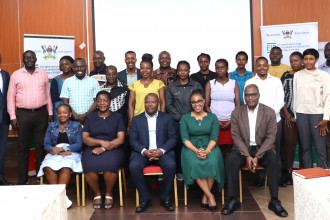
“There is a knowledge gap on how to implement green economy policies”
Hana Mekonnen Alemu is one of Ethiopia's 2023/24 IGE Fellows. She works as a Climate Change Expert at the Ministry of Water and Energy. The Ethiopian team worked with two Transition Initiatives (TIs)…







